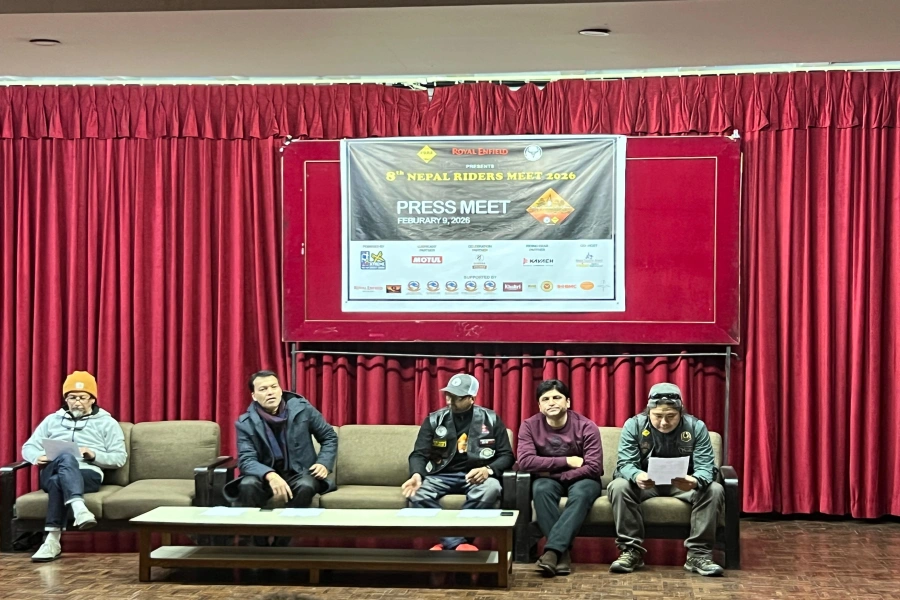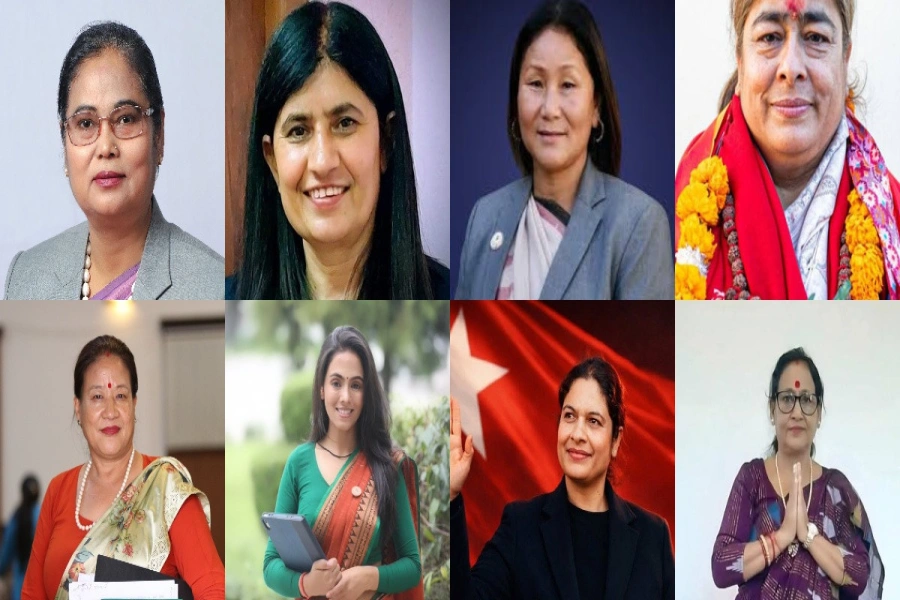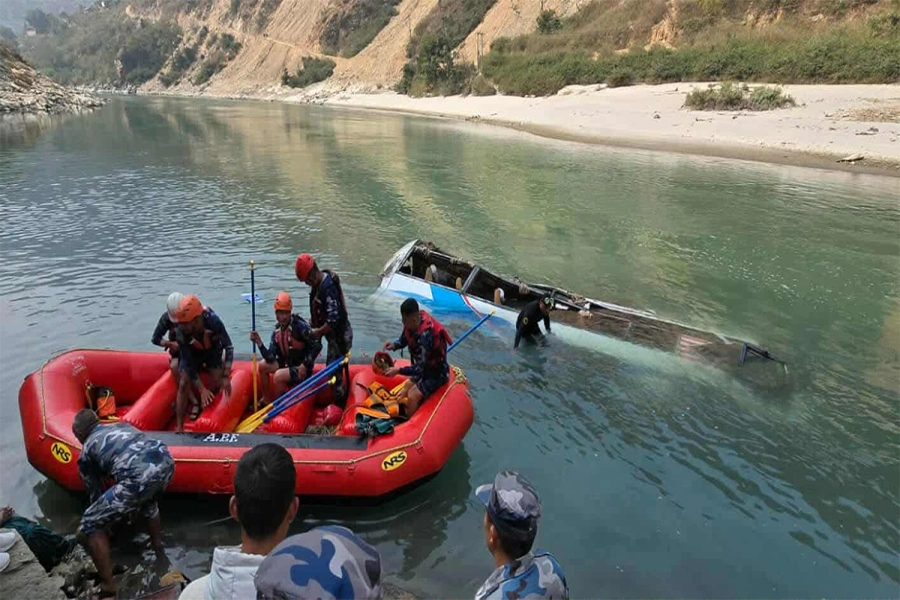Anyone with even the slightest interest in Nepali theater will be able to tell you who Sunil Pokharel is. He is considered one of the most influential figures in the Nepali theater industry. Many people know him as the founder of Aarohan Gurukul but even without Gurukul’s identity tailing him, he is one of those artists who people admire and adore. The Week caught up with him for a short chat.
How and when did theatrics draw you in?
One of my closest friends from school, Ramesh Budhathoki, was really into theater. I guess you could say he influenced me. Shortly after that, I found out about the training programs in theatre/acting, music, instruments and dancing being conducted by Nepal Academy (Nepal Pragya Pratisthan) and applied for it. I got shortlisted as one of the trainees and that’s how I stepped into theatrics. A quick fact, that was also the first time I came to Kathmandu as well.
So I’m guessing it was a big moment for you?
It was definitely a big moment for me. I hadn’t done something so drastic before that and it was probably the first time I had set off somewhere without a chaperon or a sentinel. My parents were not happy about that. Theater was not something they understood because it was a relatively foreign concept for someone to take it up as a career back then. They also didn’t think it was a reliable career option. I had just completed my high school and I took off to Kathmandu for the Academy training forgoing studies and career in a traditional and conventional area and, to be honest, my family was not happy.
82 per cent work under Lumbini Master Plan completed

Living in Kathmandu must have been quite an experience then?
I admit that that particular period of my life was quite tough. And because my family was so against the idea of me pursuing theater, I could not even ask them for financial help. I did my fair share of odd jobs to make ends meet and be able to support myself economically. My parents didn’t understand or support me in my career choice for a long time. It wasn’t until I came back after graduating from National School of Drama in Delhi, India that they finally gave up on trying to direct me towards the customary Nepali life and let me do my thing.
So where does Gurukul fit into all of this?
When I returned after my graduation, I used to teach drama at a few organizations for an hour or two at a time. But I soon realized that to have an effective course for theater and acting there had to be full time schooling. An hour or two of training was not going to cut it. Additionally, Nepal did not have a place where theater shows could be held. I was constantly visualizing a place with its own auditorium that would fit a handful of viewers with no commercialized pressure for a bigger audience. And before I had even started my grad studies, we (Sunil Pokharel, Badri Adhikari, Pratik Adhikari, Nisha Sharma and a few more theatre enthusiasts) had formed Aarohan, the mother organization for most of our theatrical ventures. Aarohan Gurukul was established in 2003.
You have been in this industry for more than a couple of decades now. How do you feel about the current theater scene?
Theater has grown tremendously and I’m more than ecstatic about that fact. When I joined theater it wasn’t a conventional profession. Actually, it wasn’t even counted as a profession by many people. It was an appallingly small industry. The situation now is completely different. Many people have invested in this industry and an even bigger crowd is interested in watching dramas. A big difference between the theater scene when I first started out and now is in the kind of people involved in theater. Back in my days, theater was thought to be for misfits, for those who couldn’t study, but these days theater has really good people who are highly educated and well read. This helps in refining the stories and acting even more.
With all these decades of devotion, you have mastered a reasonable number of skills within theatrics. Which one would you name as the front-runner?
I love acting and directing above anything else. Acting because it gets me into all these different personality and mentalities of different people that I would not have otherwise experienced. And directing because that’s where I get to delve and dig deep into stories to grasp an understanding of everything that’s happening. And if I had to choose between the two, I’d say I focus more on directing because I find it very extricate and liberating.
What about the things outside theater? What are your other hobbies?
I’m an avid reader. If I am not acting or directing, then I’m reading. I read anything that fascinates me. But I’ve noticed that most of the books that fascinate me are fictional works. I do read other genres too though. I do not discriminate between genres or languages. And this is the reason why I cannot name a favorite book or author. I have so many that I really like and enjoy reading that I couldn’t possibly recall all of them in one sitting. Besides reading, I enjoy travelling. I enjoy travelling within and outside Nepal equally.
You can watch Pokharel’s most recent directorial project Hariyo Dhunga at Shilpee Theater in Battisputali till Jan 6, 2018.






































